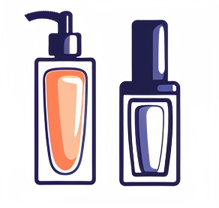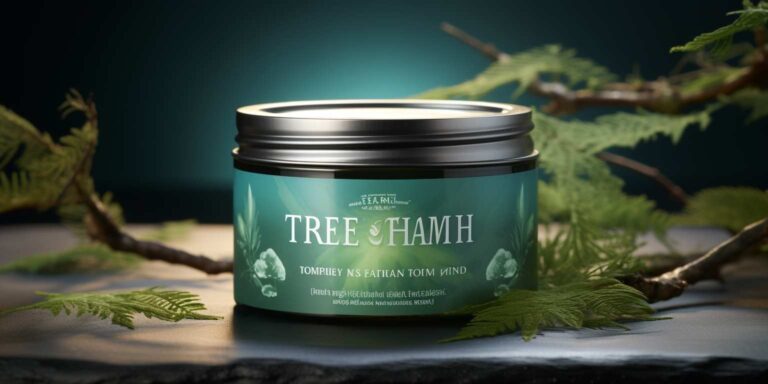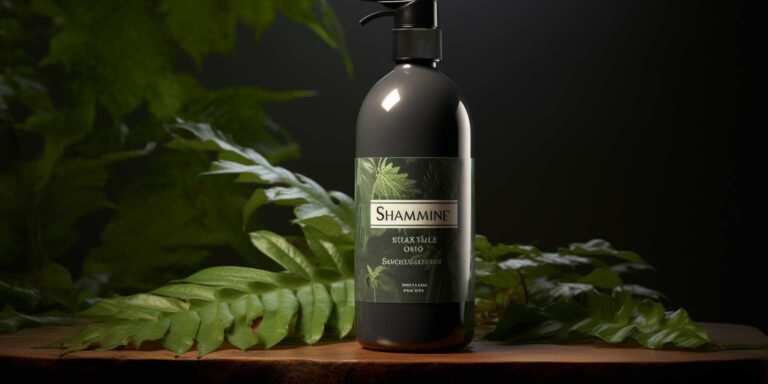The ultimate guide to natural baby shampoo
When choosing a natural baby shampoo, it’s important to look for certifications and labels that indicate the product is truly free from harmful ingredients. Certifications such as USDA Organic and EcoCert provide assurance that the shampoo meets strict standards for organic ingredients and sustainable manufacturing practices. Additionally, fragrance-free and hypoallergenic formulations are ideal for babies with extra sensitive skin or allergies.
One key ingredient to look for in natural baby shampoo is coconut oil. Coconut oil is rich in antioxidants and moisturizing fatty acids that help hydrate and protect a baby’s delicate skin and hair. Another beneficial ingredient is chamomile extract, known for its soothing properties that calm irritated skin and promote relaxation during bath time.
Table:
| Key Ingredients | Benefits |
|---|---|
| Coconut Oil | Hydrates and protects delicate skin and hair |
| Chamomile Extract | Soothes irritated skin and promotes relaxation |
When it comes to usage, a little goes a long way with natural baby shampoo. A dime-sized amount is typically sufficient to lather gently and cleanse a baby’s hair and scalp. It’s important to rinse thoroughly to remove all traces of shampoo and avoid any potential irritation.
Gentle organic baby wash for delicate skin
When it comes to caring for your little one’s delicate skin, opting for a gentle organic baby wash is paramount. The sensitive nature of a baby’s skin demands products that are mild yet effective, organic yet potent. With a plethora of options flooding the market, it’s essential to navigate wisely to ensure you’re choosing the best for your bundle of joy.
Organic baby washes are crafted with utmost care, utilizing natural ingredients devoid of harsh chemicals and synthetic fragrances. These formulations not only cleanse but also nourish and protect your baby’s skin, fostering a healthy and happy epidermis.
One of the primary advantages of opting for a gentle organic baby wash is its hypoallergenic nature. Babies are prone to allergies and sensitivities, and exposing their skin to harsh chemicals can exacerbate these issues. Organic baby washes, formulated with mild cleansers and plant-based ingredients, significantly reduce the risk of adverse reactions.
| Key Benefits of Gentle Organic Baby Wash: |
|---|
| 1. Nourishment: Organic baby washes often contain ingredients like coconut oil and aloe vera, which moisturize and soothe the skin, preventing dryness and irritation. |
| 2. Safety: Free from harsh chemicals such as parabens, phthalates, and artificial fragrances, gentle organic baby washes prioritize the safety and well-being of your baby’s delicate skin. |
| 3. Environmentally Friendly: Organic formulations are not only gentle on your baby but also on the environment, as they are often biodegradable and sustainably sourced. |
Moreover, organic baby washes are gentle enough for daily use, allowing you to establish a consistent bathing routine without worrying about over-drying or stripping your baby’s skin of its natural oils.
When selecting a gentle organic baby wash, it’s essential to scrutinize the label and opt for certified organic products. Look for seals of approval from reputable organizations, ensuring that the product meets stringent standards for purity and quality.
No-tears natural infant shampoo for happy bath time
Picture this: bath time, a moment of joy and bonding between you and your little one. The giggles, the splashes, and the tiny fingers reaching for bubbles – a cherished time indeed. However, the happiness can quickly turn into distress if your baby’s eyes get irritated by harsh shampoos. That’s where no-tears natural infant shampoo comes to the rescue, ensuring bath time remains a delight.
Let’s delve into what makes no-tears natural infant shampoo a game-changer for happy bath time rituals. First and foremost, the term ‘no-tears’ is not just a catchy marketing phrase; it’s a promise. This gentle formulation is specifically designed to be tear-free, ensuring that your baby’s eyes remain untouched by stinging sensations during the shampooing process.
What sets this shampoo apart is its commitment to using all-natural ingredients that prioritize the health and well-being of your baby’s delicate skin and hair. Say goodbye to harsh chemicals that can cause irritation – this natural formula is a blend of mild cleansers and organic extracts. These ingredients not only cleanse but also nourish, leaving your baby’s hair soft, shiny, and sweetly scented.
Now, let’s talk about the key ingredients that make no-tears natural infant shampoo a gentle giant in the world of baby care. Aloe vera, known for its soothing properties, takes the center stage. It moisturizes the scalp and prevents dryness, keeping your baby’s hair silky and manageable. Paired with the goodness of chamomile, which has natural calming properties, the shampoo provides a relaxing experience for your little one.
For parents who value transparency in product labels, rejoice! No-tears natural infant shampoo proudly flaunts its paraben-free, phthalate-free, and artificial fragrance-free status. The absence of these harsh additives ensures that your baby’s skin is not exposed to potentially harmful substances, giving you peace of mind during every bath time.
But the benefits don’t end there. This wonder shampoo is also dermatologist-tested, assuring you of its safety for your baby’s sensitive skin. The pH-balanced formula further enhances its suitability for regular use, making it a staple in your baby care routine.
How to choose the best natural baby shampoo
When it comes to choosing the best natural baby shampoo, it’s crucial to prioritize your little one’s delicate skin and overall health. With an array of options flooding the market, navigating through them can be overwhelming. Here’s a comprehensive guide to help you make an informed decision:
1. Ingredients: Check the label for gentle, natural ingredients devoid of harsh chemicals like sulfates, parabens, phthalates, and artificial fragrances. Look for organic or plant-based ingredients like coconut oil, aloe vera, chamomile, and calendula, which are soothing and nourishing for baby’s skin.
2. pH Balance: Opt for a shampoo with a pH-balanced formula to ensure it matches the natural pH of your baby’s skin, which helps maintain its delicate balance and prevent irritation.
3. Hypoallergenic: Babies have sensitive skin prone to allergies, so choose a hypoallergenic shampoo free from common allergens to minimize the risk of adverse reactions.
4. Fragrance: While a pleasant scent is desirable, fragrance-free options are safer, especially for babies with sensitive skin or respiratory issues. If you prefer fragrance, opt for products with natural essential oils over synthetic fragrances.
5. Tear-Free: Look for a shampoo labeled as tear-free to ensure it won’t sting or irritate your baby’s eyes during bath time.
6. Dermatologist Recommended: Consider brands recommended by pediatricians or dermatologists, as they undergo rigorous testing to ensure safety and efficacy.
7. All-in-One vs. Specific: Decide whether you prefer a gentle all-in-one shampoo and body wash or separate products for hair and body. All-in-one options can be convenient, but separate products allow for customization based on your baby’s needs.
8. Packaging: Opt for BPA-free, recyclable packaging to minimize environmental impact and reduce exposure to harmful chemicals.
9. Reviews and Recommendations: Research and read reviews from other parents to gauge the efficacy and safety of different products. Personal recommendations from trusted sources can also be invaluable.
10. Patch Test: Before fully committing to a new product, perform a patch test on a small area of your baby’s skin to check for any adverse reactions.
The benefits of switching to organic baby care products
Switching to organic baby care products can offer a plethora of benefits for both your little one and the environment. Let’s delve into why making this transition is a wise choice:
1. Chemical-Free Formulations: Unlike conventional baby products laden with synthetic chemicals, organic baby care items are crafted using natural ingredients that are gentle on delicate skin. These formulations are devoid of harsh additives such as parabens, sulfates, and artificial fragrances, reducing the risk of irritation and allergic reactions.
2. Skin Health: The tender skin of babies is highly susceptible to irritation and dryness. Organic baby care products typically contain nourishing ingredients like shea butter, coconut oil, and aloe vera, which help to moisturize and soothe the skin, keeping it supple and healthy.
3. Environmental Impact: Choosing organic means opting for sustainable farming practices that prioritize soil and water conservation, biodiversity, and the avoidance of synthetic pesticides and fertilizers. By supporting organic agriculture, you contribute to a cleaner, greener planet for future generations.
4. Reduced Exposure to Toxins: Conventional baby care products often contain potentially harmful chemicals that can be absorbed through the skin. By using organic alternatives, you minimize your child’s exposure to these toxins, promoting overall well-being and long-term health.
5. Ethical Considerations: Many organic baby care brands prioritize cruelty-free practices and sustainable sourcing, ensuring that their products are not tested on animals and are produced in an environmentally responsible manner. This aligns with the values of conscientious consumers who seek to make ethical choices.
6. Allergen-Free Options: Organic baby care products often offer hypoallergenic formulations, making them suitable for babies with sensitive skin or allergies. These products are free from common allergens, minimizing the risk of adverse reactions.
Making bath time fun and safe with natural shampoo
Bath time can be a delightful adventure for both parents and children, but ensuring it’s both fun and safe requires careful consideration, especially when it comes to choosing the right shampoo. Natural shampoo offers a fantastic solution, providing gentle cleansing without harsh chemicals that can irritate sensitive skin or eyes.
When selecting a natural shampoo for your child’s bath time routine, look for products that are free from sulfates, parabens, and synthetic fragrances. These chemicals can strip the scalp of its natural oils and cause irritation, making bath time less enjoyable for your little one. Instead, opt for shampoos enriched with gentle ingredients like coconut oil, aloe vera, and chamomile, which cleanse and nourish the hair and scalp without causing dryness or irritation.
One of the most significant benefits of natural shampoo is its environmentally-friendly nature. Unlike conventional shampoos that may contain harmful ingredients and contribute to water pollution, natural formulas are biodegradable and eco-friendly, ensuring that bath time is not only safe for your child but also for the planet.
Furthermore, natural shampoos often come in child-friendly packaging, featuring colorful designs and fruity scents that make bath time an enjoyable sensory experience. By involving your child in the selection process, you can instill positive associations with bathing and promote good hygiene habits from a young age.
It’s essential to remember that even natural shampoos should be used sparingly, as excessive washing can strip the hair of its natural oils and lead to dryness and breakage. Aim to shampoo your child’s hair no more than two to three times a week, using a small amount of product each time to gently cleanse the scalp and remove dirt and impurities.
In addition to choosing the right shampoo, there are several other steps you can take to make bath time fun and safe for your child. Ensure that the water temperature is comfortably warm, around 37°C (98.6°F), and always test it with your elbow or wrist before placing your child in the tub. Use non-slip mats to prevent accidents and keep bath toys clean and mold-free by allowing them to air dry after each use.
Why natural ingredients matter for your baby’s health
When it comes to your baby’s health, the choice of ingredients plays a crucial role in shaping their well-being. Opting for natural ingredients in your baby’s food and products is more than just a trend; it’s a fundamental decision that can impact their growth and development.
One of the primary reasons why natural ingredients matter is the absence of harmful chemicals. Conventionally produced baby products often contain artificial additives and preservatives that may have long-term consequences on your child’s health. By choosing organic and natural ingredients, you are minimizing their exposure to potentially harmful substances.
Nutrient content is another critical factor. Natural ingredients, whether in baby food or skincare products, tend to retain more of their original nutritional value. This means your baby gets the essential vitamins and minerals without the compromise that processing can bring.
Moreover, the digestibility of natural ingredients is often superior. Babies have delicate digestive systems, and introducing them to easily digestible foods can make a significant difference. Natural ingredients are typically gentler on the stomach, reducing the likelihood of allergies and digestive issues.
Consider the impact on the environment as well. Choosing natural ingredients often aligns with sustainable and eco-friendly practices. This means you contribute to a healthier planet for your child’s future while making mindful choices in the present.
Let’s delve into specific examples. In the realm of baby food, organic fruits and vegetables are staples. They not only provide a rich source of essential nutrients but also help in introducing a variety of flavors to your baby’s palate. Avoiding pesticides and genetically modified organisms (GMOs) ensures the purity of these early food experiences.
When it comes to skincare, the use of natural oils such as coconut oil and jojoba oil can have immense benefits. These oils nourish and moisturize the delicate skin without the need for harsh chemicals. Shea butter is another powerhouse ingredient, known for its soothing properties.
Let’s visualize the impact through a simple comparison. Below is a table outlining the differences between conventional and natural baby products:
| Aspect | Conventional Products | Natural Products |
|---|---|---|
| Chemical Additives | Abundant | Minimal to none |
| Nutrient Retention | Lower | Higher |
| Environmental Impact | Often negative | Positive |







